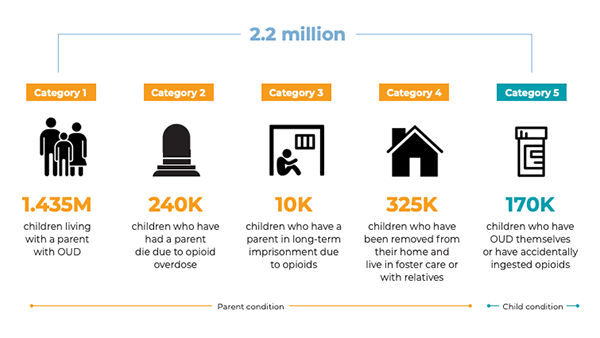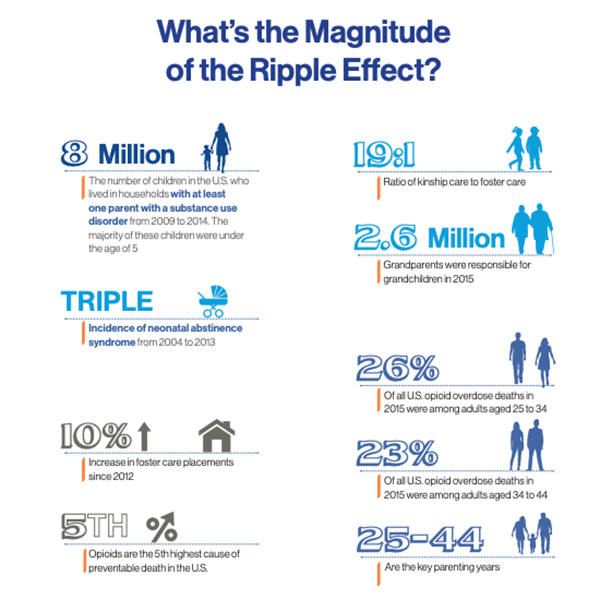
Kids are at risk of being short-changed, again.
Over the next two years, courts are expected to award billions of dollars in drug company settlements or legal judgments related to the opioid crisis. We have been here before. In the 1998 Tobacco Master Settlement, large portions of the awards were intended for prevention and to address the harm done to children. In reality, of the $27 billion in settlement money that states will collect in FY2020, just $740 million — less than 3% — will go toward helping people quit and keeping kids from smoking.
In 2017, more than 2 million children were directly affected by the opioid crisis. More than half of them lived with at least one parent suffering opioid use disorder. Another quarter-million had a parent die from an overdose. In addition, the rates of children entering foster care have skyrocketed, mostly as a result of the epidemic.
First Focus on Children convened nearly 2 dozen experts, advocates, and professionals this month to discuss strategies to ensure that children receive their fair share of any settlement money. Over the next few weeks, the group will compile recommendations for State Attorneys General and other key players on where funds are most needed and how to best administer them.

Here are some of the reasons that children need drug money:
- More than 500 children die every year from opioid poisoning.
- Every 15 minutes a baby is born addicted.
- In 2014, 32,000 babies were born addicted – a 500% increase over a decade earlier.
- Caring for babies born with opioid addiction cost more than a half-billion dollars in 2016.
- More than 400,000 children are in foster care. 36% of them are there because of parental drug use.
- In 2017, the rate of children entering foster care due to parental drug use rose for the sixth consecutive year.
- The number of children admitted to hospitals for opioid overdoses nearly doubled from 2004 to 2015.
- Of the hundreds of state and federal initiatives enacted to contain the opioid crisis, almost none focus on children.
For more information on First Focus on Children’s opioids initiative, contact Averi Pakulis or Aubrey Edwards-Luce.
